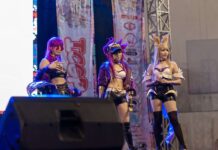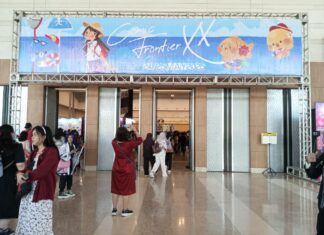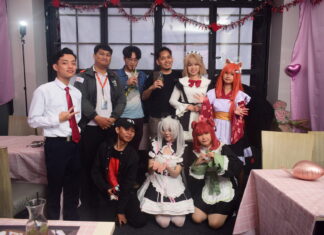Artikel ini juga tersedia dalam Bahasa Indonesia.
The Japanese pop culture scene in Indonesia is quite dynamic, not just in terms of anime genre preferences but also in terms of the stage performers at Japanese pop culture events. Around the 2000s and 2010s, the stage at Japanese pop culture events was dominated by bands performing popular J-Rock, and anisong of the era.
Entering the 2020s, there’s a shifting trend when it comes to stage performers. Idol groups have become increasingly prominent in Japanese pop culture events, from small-scale events to major events like ChibiCon Surabaya. While bands still appear in these events, there is a perception that idol groups are gradually replacing bands in the event. But is that really the case?
To explore this question, KAORI Nusantara held a Forum Group Discussion (FGD) at ChibiCon Surabaya titled Where Is Our Japanese Music Cover Band Scene Headed?. The FGD event took place at Tunjungan Plaza 3, Surabaya, on 22 December 2024. The panel brought together representatives from bands, idol groups, event organizers, and event attendees from Surabaya and East Java area.
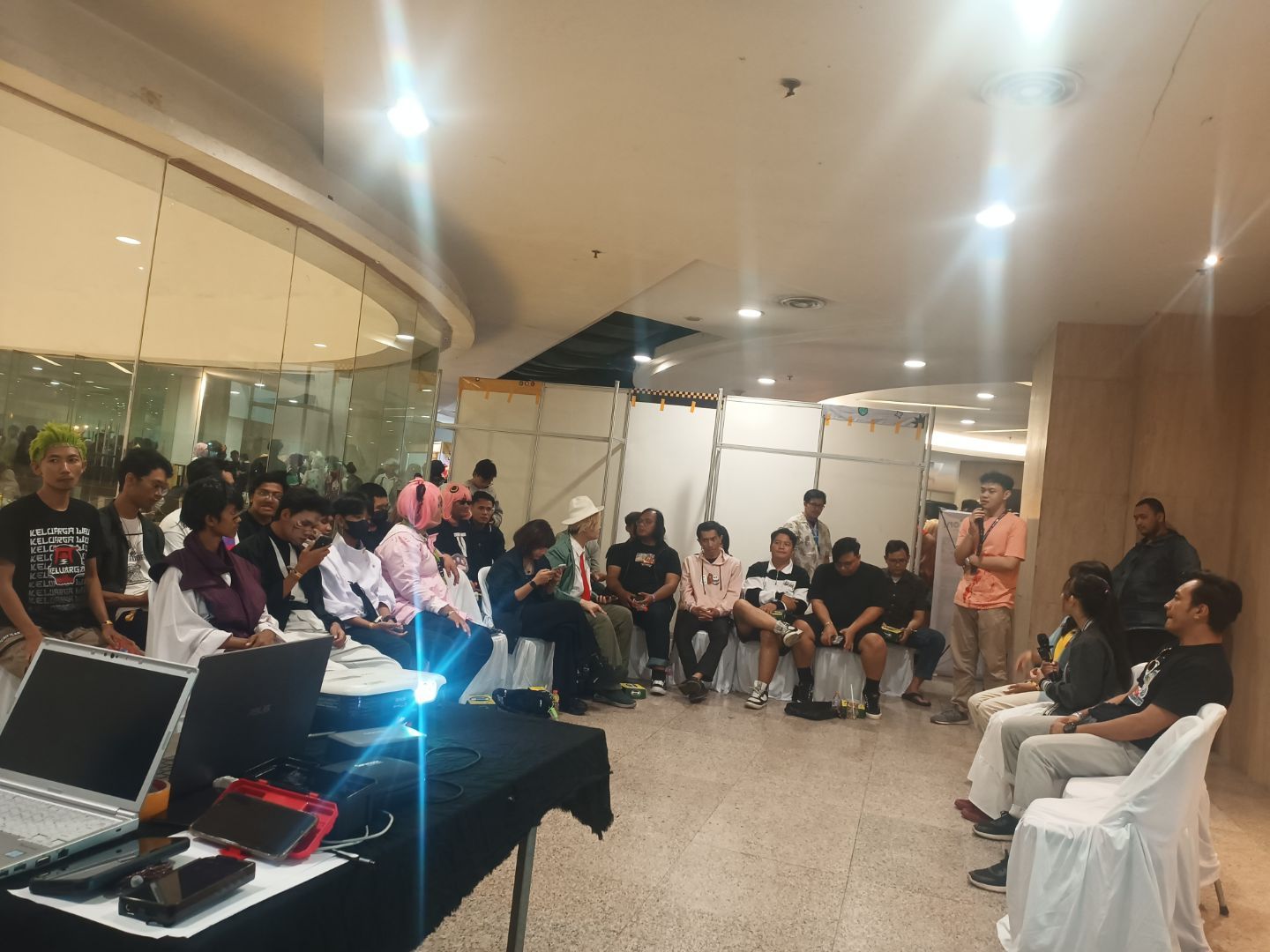
During this FGD session, various aspects of the Japanese music cover band scene in East Java were discussed, including the shift in event performers from bands to idol groups, how bands continue to survive post-pandemic, and strategies for those bands to stay relevant in the evolving industry.
Shifting Performer Trends Are Natural
The first topic addressed in the discussion was the changing trend of event performers. Japanese Music cover bands used to be the main performers of Japanese pop culture events. But now, idol groups and virtual YouTubers have started to become the most popular shows. The FGD participants offered diverse insights and perspectives on this transformation.
Gandu, a member of Otaku Band and Fenomena Paruh Baya, emphasized that Japanese music cover bands shouldn’t be concerned with this shift. According to him, event organizers naturally adapt to market trends and demand. If the audience favours idol groups over bands, then it makes sense for the event organizers to follow the trend. He viewed this as a natural cycle in the industry.
A member of Seizaka46 idol group also noted the increasing prominence of idol groups. Since their formation in 2022, they observed that, initially, the balance between bands and idol groups in events was fairly equal. However, as JKT48 regained popularity and audience preferences leaned more toward idols, the proportion shifted to around 70-30% in favour of idol groups.
Harun from Kojitsu, a community of Japanese music cover bands in Surabaya, agreed with those views. He reassured me that the Japanese band scene is still alive. As a community, Kojitsu also aims to support fellow musicians in East Java, which includes idol groups.
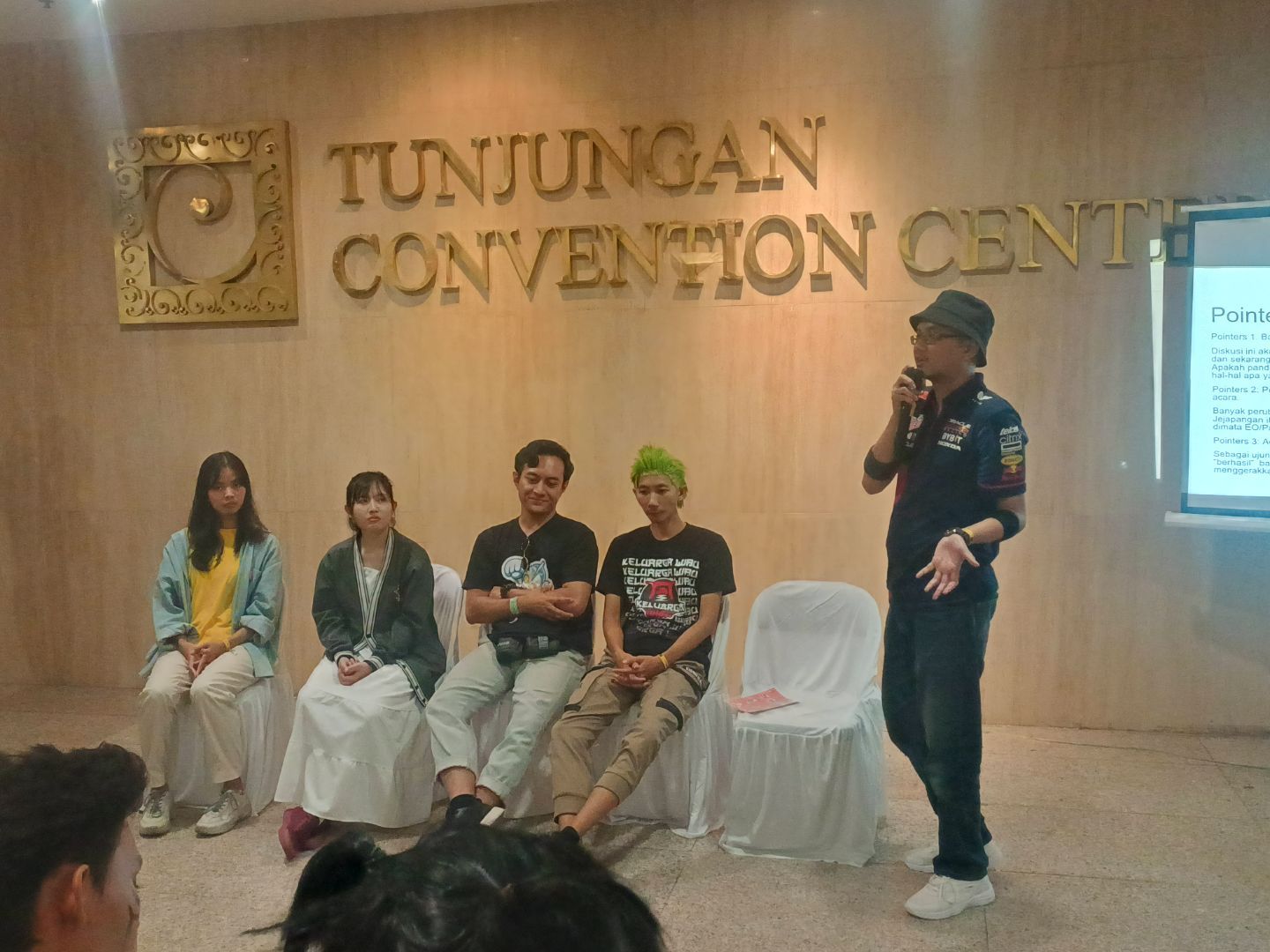
Why Idol Group Become More Popular?
Content creator Linkinfujin acknowledged that Japanese music cover bands are facing stiff competition from idols, even to the point where some consider the band trend to be in their last breath. From an organizer perspective, he noted that organizing performances for idol groups is often more cost-effective compared to bands. Idols only require a pre-recorded backing track, whereas bands need additional equipment and instruments. However, he pointed out that some events like IKI Fest, still feature bands. He also highlighted the lack of major band competitions as a contributing factor to the declining interest in bands.
A visitor from Kediri who regularly attends events outside the Surabaya area observed that the decreasing number of band performances is partly due to the increasing frequency of events. Outside Surabaya, the number of band performers in each city isn’t that much. Meanwhile, Japanese pop culture events happen more often. Even worse, the same bands tend to be invited repeatedly, leading to a lack of variety. Bands from outside the city are also rarely invited.
Another attendee, Christian, also mentioned that audience preferences are shifting towards performers with unique gimmicks. Idol groups, with their distinct visual and musical appeal, are currently riding this wave. Additionally, the pandemic has changed viewing habits. Previously, audiences preferred live performances. Now, they usually watch recorded performances online, which predominantly feature idol groups.
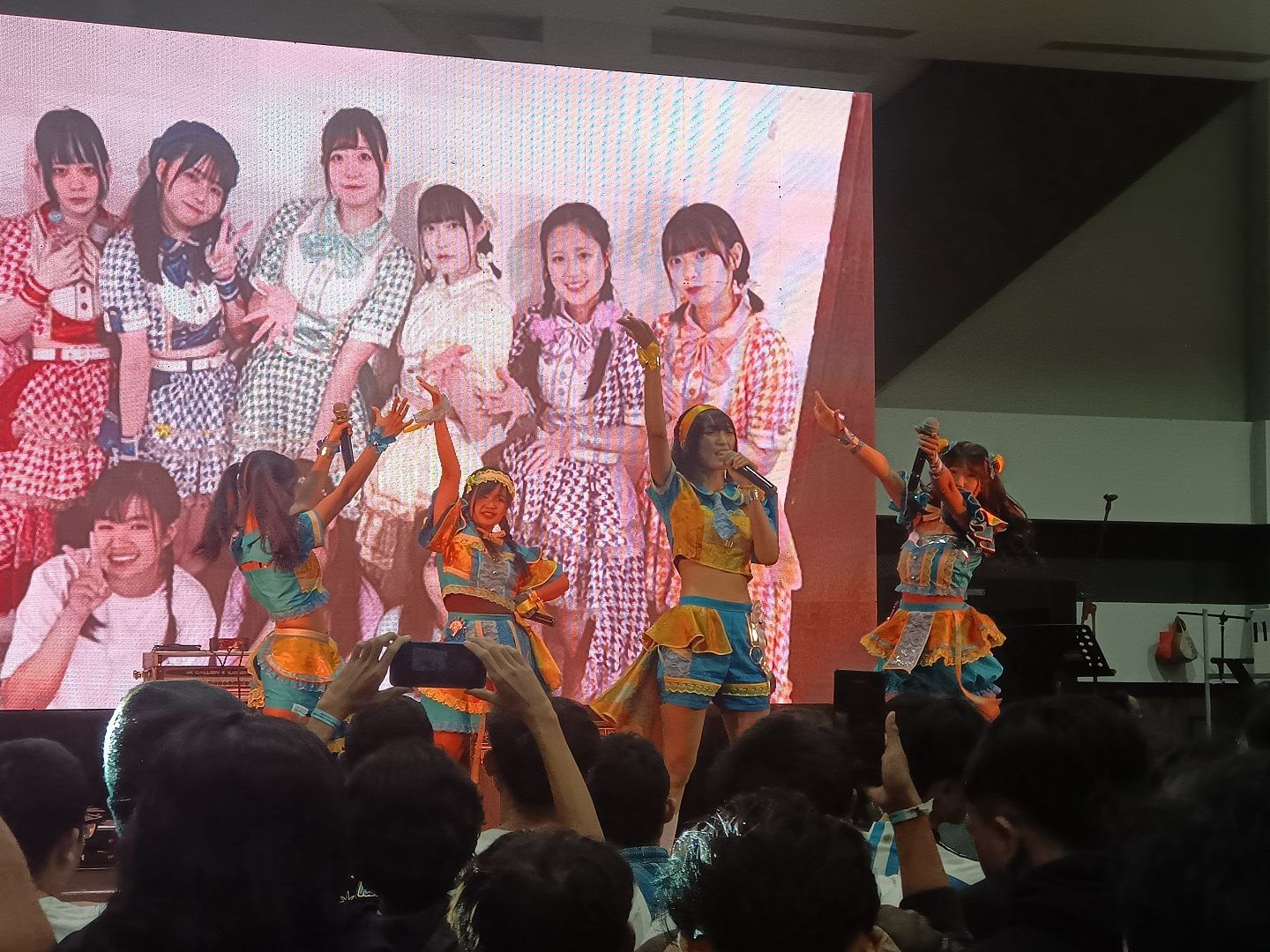
Balancing Budget Constraints and Performer Fees
Ali Takajo from Idoltopia, an event organizer who focuses on idol events, explained that budget constraints also influence the organizers’ decision to whether to invite band performers or not. Idol groups usually charge lower performance fees than Japanese music cover bands. Not to mention, idols usually have a strong fan base and it increases the event attendants. Because of this, and the aforementioned lower performance fees, idols become a more feasible option for organizers. Additionally, idol groups contribute to event revenue by selling merchandise, making them even more attractive to organizers.
Airin from IKI Fest agrees with the sentiments. She stated that when IKI Fest is contracted by mall proprietors to create a Japanese pop culture event, which usually comes with limited budgets. Because of this, IKI Fest as the organizers must carefully select affordable yet impactful performers. However, IKI Fest still invited band performers when they held the event by themselves.
An attendee who also worked as a DJ stated that he was willing to perform for free or for minimal compensation just to entertain the audience. However, Masdhito from Vibetronic warned that this trend could lead to a “race to the bottom” phenomenon. This is the phenomenon where performers are willing to receive low fees just to secure gigs, but ultimately lowering the industry standards and making it difficult for performers to earn a sustainable income. This could be crucial because money could be the source of motivation for creative workers. Because of this organizers and performers must find solutions that can satisfy all parties.
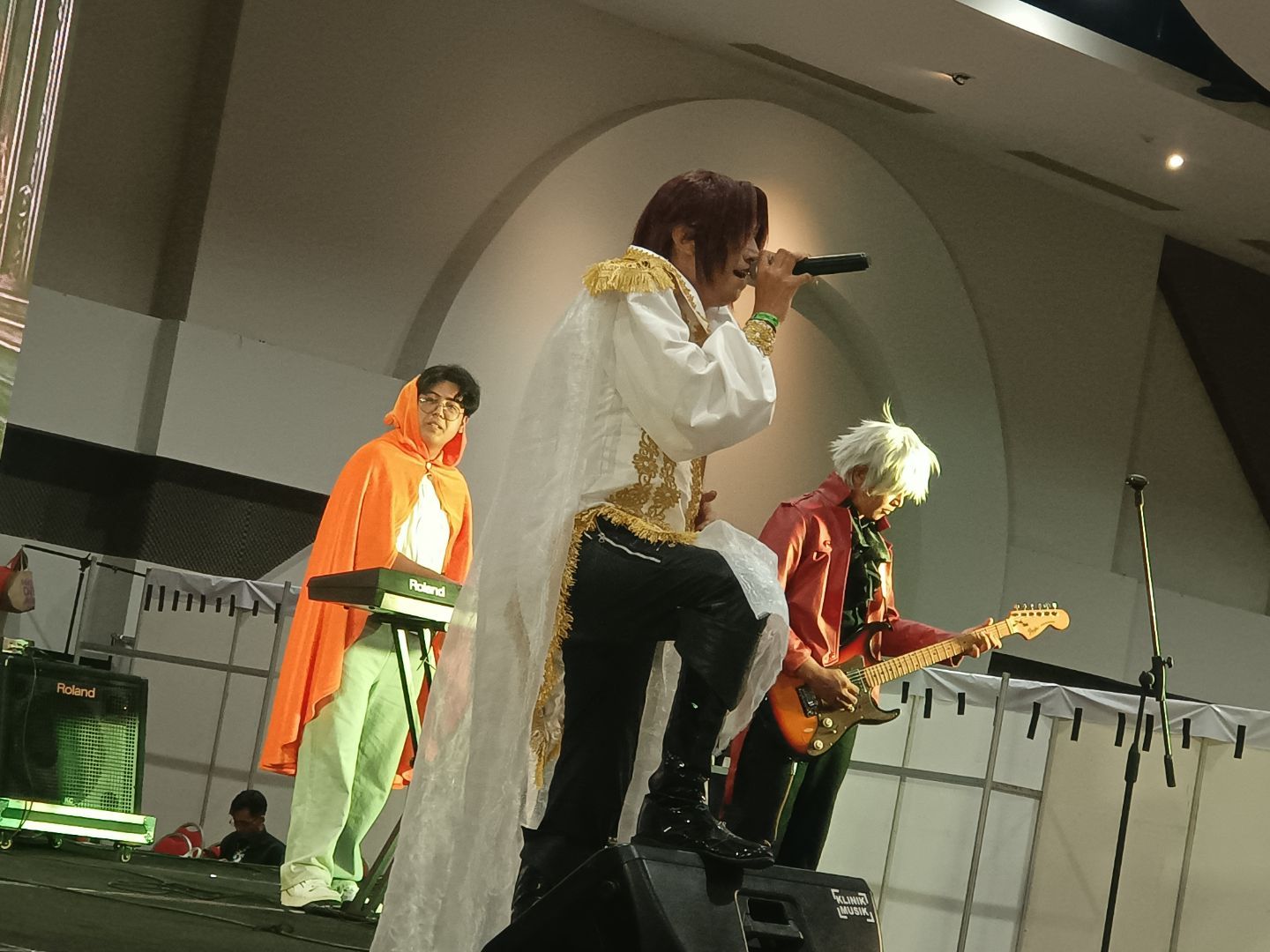
The article is continued to the next page.



